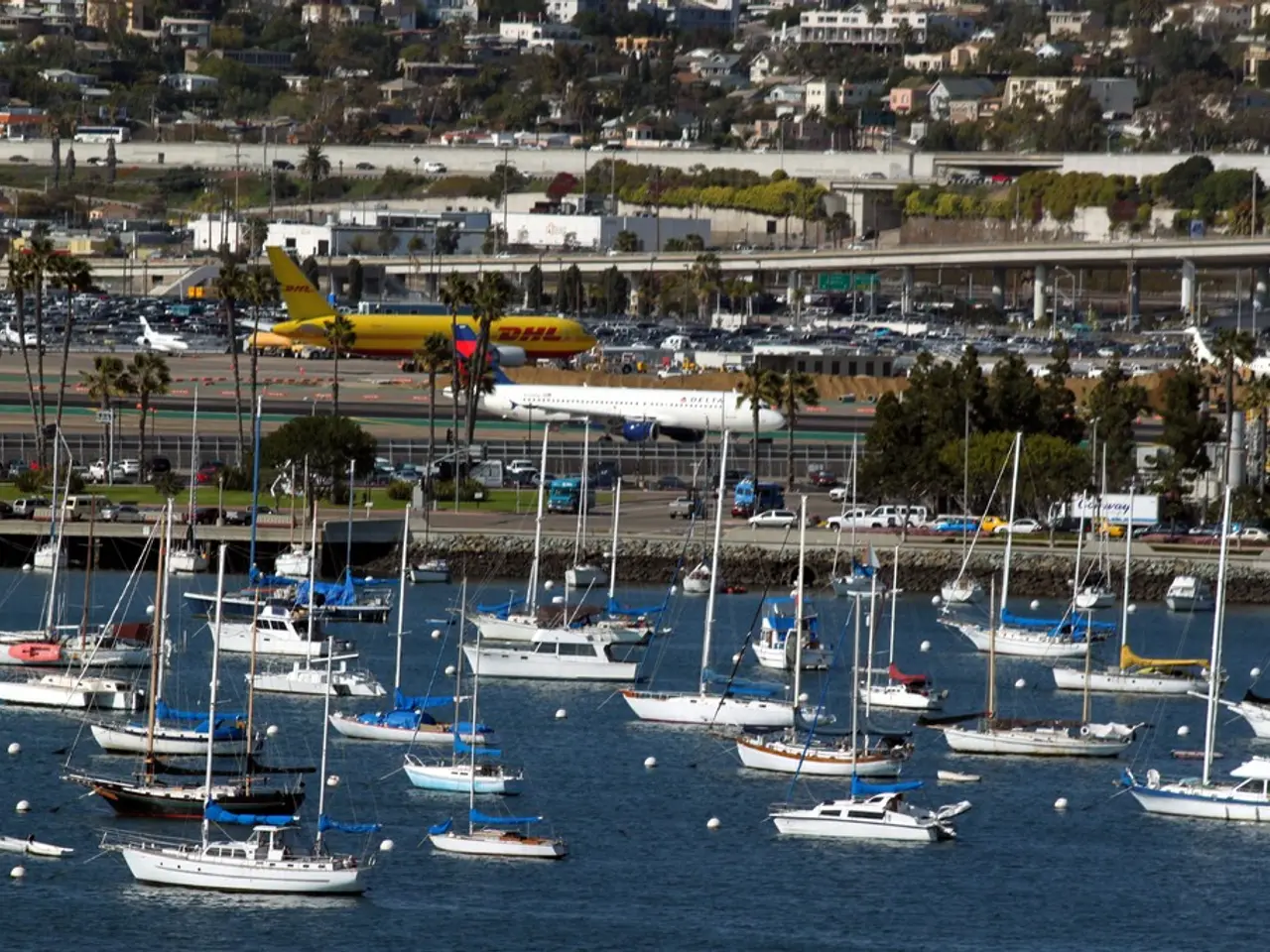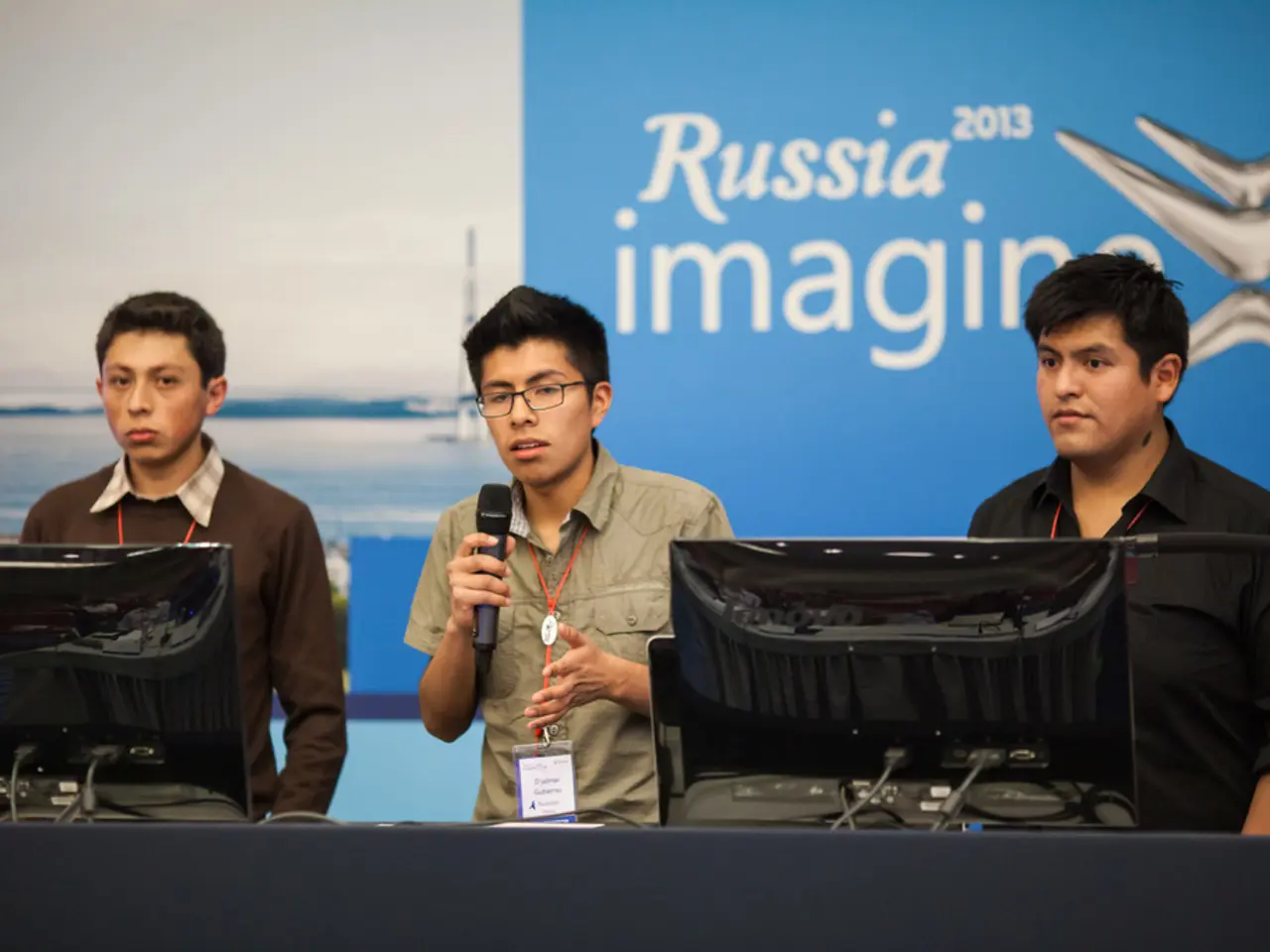Designer of Navy Ships Chosen for University of California, San Diego's Upcoming Hydrogen-Powered Research Boat on the California Coast
The University of California San Diego's Scripps Institution of Oceanography is set to revolutionise maritime research with the development of a first-of-its-kind hydrogen-hybrid propulsion research vessel. Known as the Coastal-Class Research Vessel (CCRV), the zero-emission ship will join the institution's fleet and play a crucial role in advancing our understanding of California's coastal oceans and climate change impacts.
The CCRV, currently in development, is designed to use a hydrogen fuel cell system integrated into a hybrid propulsion setup. The design has earned an Approval in Principle (AIP) by the American Bureau of Shipping (ABS), highlighting its compliance with stringent safety and operational standards.
Key equipment vendors selected for the project include Ballard Power Systems, known for their hydrogen fuel cell technology, and Chart Industries, specialising in hydrogen storage systems. Siemens Energy is the electrical integrator for the project, working closely alongside naval architecture firm Glosten, who is responsible for the vessel’s design.
When complete, the vessel will likely be a coastal monohull approximately 30-37 metres in length, optimised for extended range and research operations. The planned vessel will carry up to 45 students and teachers to sea on day trips, improving the university's capacity for experiential learning at sea.
The hybrid system is designed to combine fuel cells with batteries or other energy storage to ensure operational flexibility and endurance. This cutting-edge system represents a major step forward in sustainable maritime research vessels by offering clean, quiet, and emission-free operation compared to traditional fossil-fueled ships.
The development of this and subsequent zero-emission vessels is essential to the University of California’s Carbon Neutrality Initiative, the goal to be carbon neutral by 2025. The new vessel will serve as a platform for education and research dedicated to understanding the California coast and climate change impacts to the coastal ecosystem.
The CCRV will be equipped with a variety of instruments and sensing systems, including acoustic Doppler current profilers, seafloor mapping systems, midwater fishery imaging systems, biological and geological sampling systems, and support for airborne drone operations. These capabilities, along with state-of-the-art laboratories, will enable multidisciplinary research, advancing our understanding of the physical and biological processes active in California's coastal oceans.
The new vessel will be dedicated to California research missions, with the capability to study issues vital to the California economy such as the health of marine fisheries, harmful algal blooms, severe El Niño storms, atmospheric rivers, sea-level rise, ocean acidification, and oxygen depletion zones.
The CCRV represents a landmark in maritime decarbonization efforts, paving the way for broader adoption of hydrogen-hybrid technology in marine research and beyond. The vessel is expected to replace research vessel (R/V) Robert Gordon Sproul, which has served thousands of University of California students in its 42 years of service but is nearing completion of its service life.
Stay tuned for more updates on the construction status and technical specifications of this groundbreaking vessel!
- Science and technology advancements will be harnessed in the development of the Coastal-Class Research Vessel (CCRV) at the University of California San Diego's Scripps Institution of Oceanography, with key equipment vendors such as Ballard Power Systems and Chart Industries contributing hydrogen fuel cell technology and storage systems.
- The CCRV, designed to revolutionize maritime research, will join the institution's fleet, playing a crucial role in advancing education-and-self-development by carrying up to 45 students and teachers for day trips and offering multidisciplinary research opportunities through state-of-the-art laboratories and advanced sensing systems.
- The zero-emission vessel will focus on oceanographic research, studying various issues affecting California's coastal oceans, including sea-level rise, ocean acidification, and harmful algal blooms, contributing significantly to understanding the California coast and climate change impacts to the coastal ecosystem.




